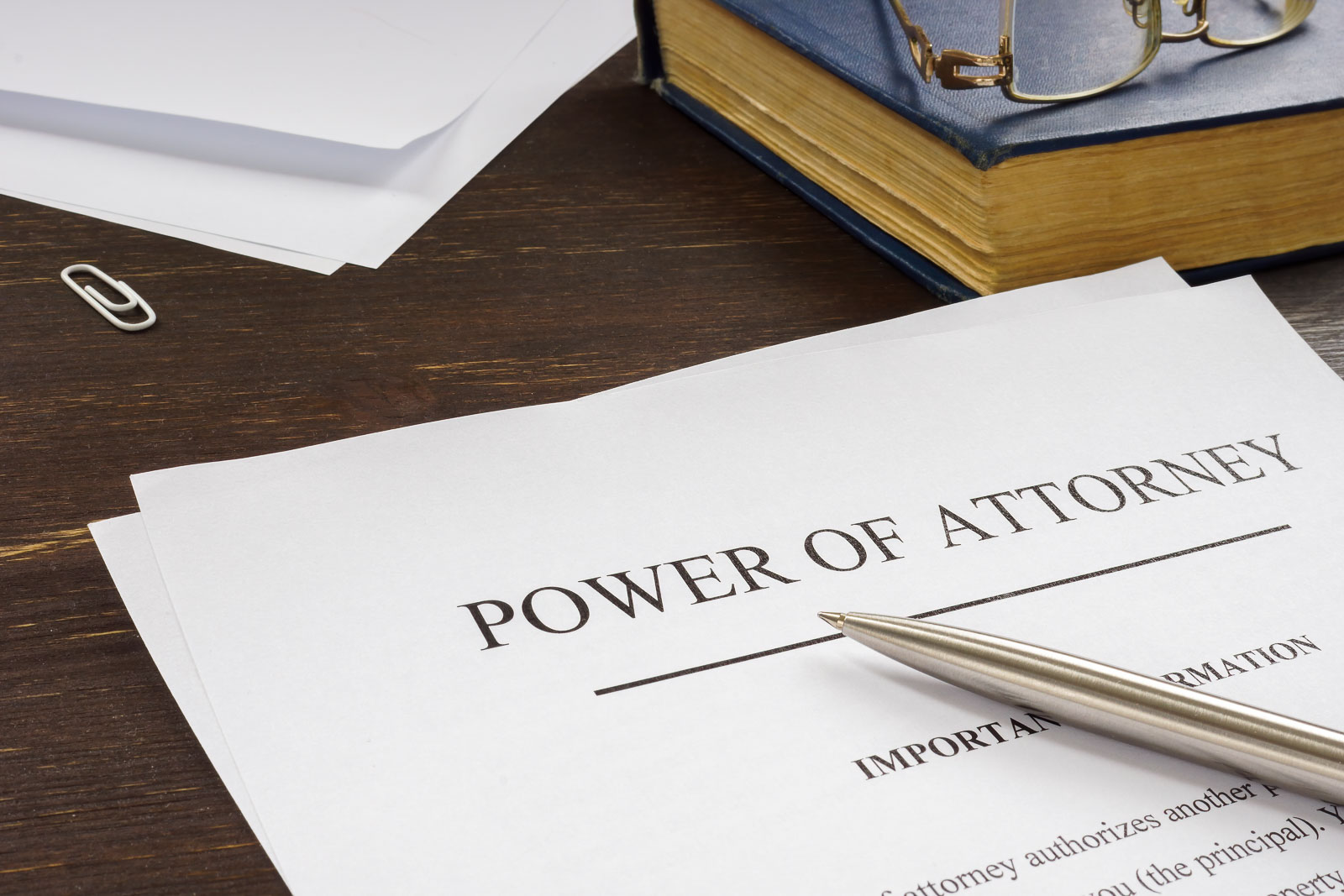
What is a Power of Attorney and Why Should You Have One?
Who do you want to make decisions for you when you no longer can? This is an important question to consider. A Power of Attorney can accomplish this and provide you peace of mind that your affairs will be managed when you can no longer do so.
Who do you want to make decisions for you when you no longer can? This is an important question to consider. A Power of Attorney can accomplish this and provide you peace of mind that your affairs will be managed when you can no longer do so.
What is a Power of Attorney?
A Power of Attorney is a legal document that you (the “grantor”) sign that gives another person (the “attorney”)the power to manage your affairs.
What can my Power of Attorney do?
The Power of Attorney document can be used to appoint two “types” of attorneys: (1) a property attorney, and (2) a personal attorney. These can be two different people, or one person can assume both roles. First, a property attorney can step into your shoes and deal with your property and finances just as you would. For example, they could manage your bank accounts or sell your house. A personal attorney looks after more day-to-day care decisions. For example, if you need to be placed in a care home they can select where you go. Basically, your attorney can step into your shoes and manage your affairs just as you would.
An attorney is required to exercise authority honestly, in good faith, and in the best interests of the grantor. The attorney has various responsibilities, including a responsibility to provide an “accounting” in certain circumstances.
What does it mean to have an“enduring” Power of Attorney?
If your Power of Attorney document states that it is an “enduring” Power of Attorney, this means that your attorney can act for you after you lose capacity. This is the more common form of Power of Attorney document.
When Does my Power of Attorney Come into Effect?
Unless you specifically include a condition in the document, your Power of Attorney is valid from the moment that you sign it. Meaning, as soon as the document is signed your attorney can step into your shoes and act. That said, you can also make your Power of Attorney conditional on some event. This is called a “contingent” or “springing” Power of Attorney because it “springs to life” on the happening of a certain event. For example, your Power of Attorney can be contingent upon two medical doctors declaring you no longer have capacity.
Does my Power of Attorney Need to be in Any Specific Form?
Generally, it is a good idea to consult a lawyer about your Power of Attorney; although, this is not a requirement. The Powers of Attorney Act, 2002 SS 2002, c P-20.3 requires that your Power of Attorney is (1) in writing, (2) dated and signed, (3)witnessed by a lawyer and accompanied by the required documentation, or (4), if not witnessed by a lawyer, witnessed by two persons who are not family members of the grantor or the attorney.
What Happens if You Lose Capacity and Don’t have a Power of Attorney?
In order to appoint an attorney,you must have capacity.
In the event you lose capacity, and did not previously appoint an attorney, The Adult Guardianship and Co-Decision-Making Act SS 2000, c A-5.3 (the “Act”) sets out a process for having someone appointed by the Court. In that case, there are two options for a court appointment: (1) an adult in your life can step up and make an application to the Court of King’s Bench asking to be appointed as your adult guardian, or (2), if no adult is willing and able, the Public Guardian and Trustee can step in and manage your affairs.
In the event an adult guardian is appointed for you, they must comply with the Act. Particularly, your guardian is required to give a yearly accounting of your property to the Court and the Public Guardian and Trustee. This means that once a year your guardian will be required to report what money has come in for you, what they did with that money, any decisions they made regarding your property, and so on.
So, Why is it a Good Idea to have a Power of Attorney?
A Power of Attorney is an integral “tool” in the estate planning “toolbox”. It is important to consider who you want to act for you when you no longer can. This way, someone can step into your shoes and manage your affairs just as you would. Most importantly, by making a Power of Attorney you get to choose who your attorney is – rather than having the Court appoint one.
For more information on this topic,visit: https://www.plea.org/plans-for-the-future/power-of-attorney
The information in this article is not legal advice. We encourage you to consult with your legal advisor for advice specific to you.
Nick Kane is an articling student with Stevenson Hood Thornton Beaubier LLP in Saskatoon.
Contact: office@shtb-law.com

.jpg)